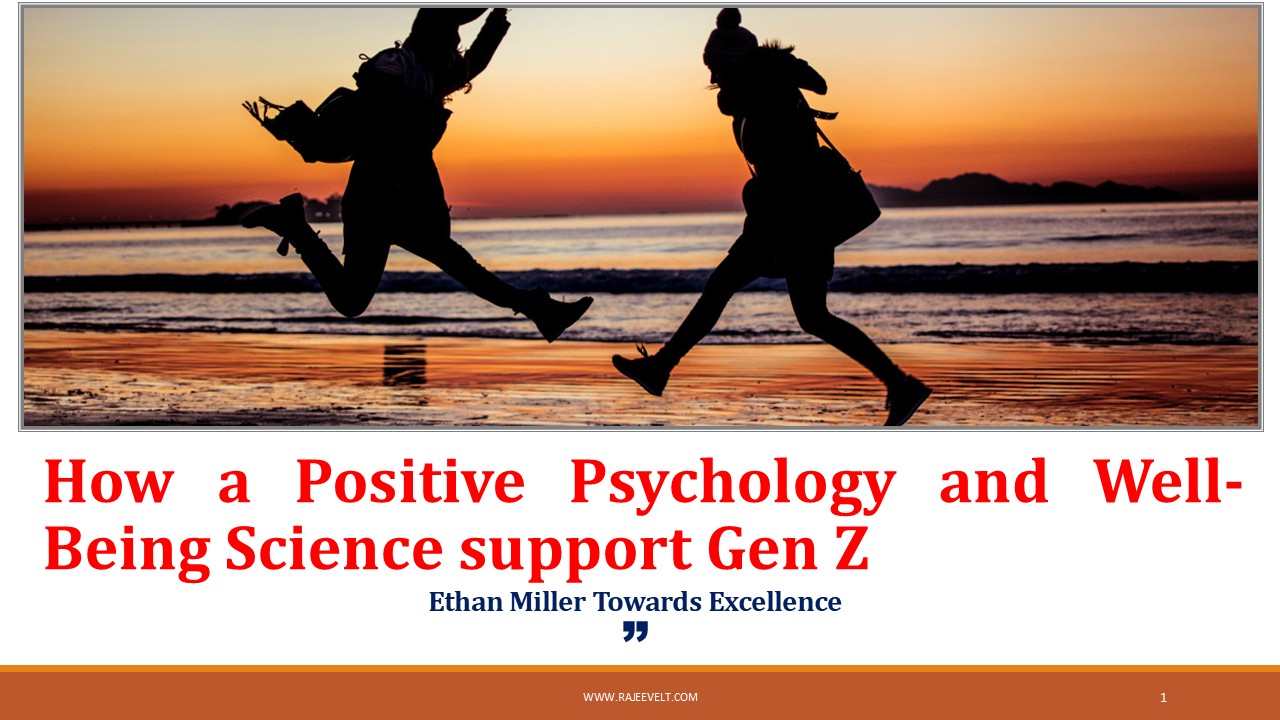Ethan Miller Towards Excellence
How a Positive Psychology and Well-Being Science support Gen Z
On the other side of the world, in sunny California, Ethan Miller appeared to have it all. At twenty-two, he was tall, athletic, and charismatic. His Instagram account was a highlight reel: beach sunsets, surfing adventures, photos with friends at concerts, even snapshots from his internship at a flashy tech start-up.
But behind the filters lay a different story. Ethan often sat alone in his apartment at night, scrolling through his phone with a hollow ache. Despite hundreds of online “friends,” he felt profoundly disconnected. The pandemic years had intensified his loneliness, and he had become adept at hiding his struggles under layers of humour and performance.
One evening, after yet another party where he laughed loudly but returned home empty, Ethan admitted to his roommate, “Man, I feel like I’m living for likes. It’s exhausting.”
His roommate shrugged. “Why don’t you take that Positive Psychology course? I heard it’s not just theory—it actually helps.”
Skeptical but desperate, Ethan enrolled. The class was unlike anything he had experienced. Instead of exams, students were asked to reflect, experiment, and build “meaningful projects.” One assignment asked them to design an activity rooted in their values. After days of reflection, Ethan chose to volunteer at a local food bank.
At first, he saw it as a requirement. But as he organized shelves and spoke with families receiving support, something cracked open. He realized he felt genuinely alive when serving others. The satisfaction of helping outweighed the fleeting dopamine of online likes.
Ethan was introduced to Seligman’s PERMA model—Positive Emotions, Engagement, Relationships, Meaning, and Accomplishment.
- He began practicing mindfulness on his morning walks, noticing the colors of the sky instead of rushing to capture them for Instagram.
- He reignited his passion for creative writing, losing himself in words late at night—a true state of flow.
- He reached out honestly to two close friends, confessing his loneliness. To his surprise, they admitted they felt the same. Their conversations grew deeper, more authentic.
- He redefined his career aspirations, linking them not to prestige but to social impact.
- And when he made progress, he celebrated the small wins instead of chasing perfection.
One day, while reflecting in his journal, Ethan wrote:
“I thought success was being seen. But real success is being real—with myself and with others. That’s freedom.”
Ethan was still the same young man—surfing, studying, laughing—but the pressure to prove himself had loosened. He felt grounded, balanced, and purposeful.
Ethan’s transformation shows how meaning-making, authentic relationships, and balanced accomplishment—key elements of Positive Psychology—can address Gen Z’s struggles with identity, pressure, and isolation in the United States.



